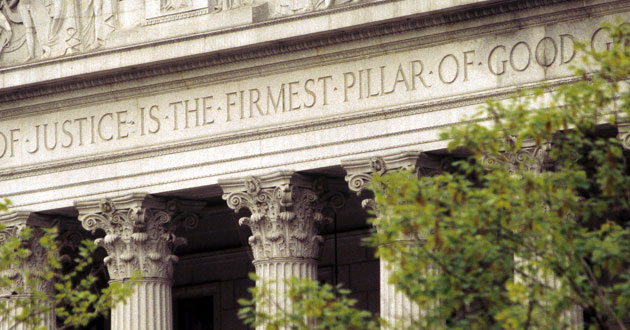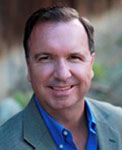Freedom is the question this court session and, thankfully, freedom is the answer! Following on the heels of the monumental Masterpiece Cake shop ruling, which turned on the free exercise of religion, the Supreme Court continued to ask and answer the timely burning cultural question: Does the First Amendment allow the government to force citizens to affirm or express ideas that violate their conscience? Thankfully the answer is “No!”
On June 26, 2018, the Supreme Court, in a 5-4 ruling, reversed the U.S. Court of Appeals for the Ninth Circuit’s decision upholding California’s 2015 Reproductive FACT Act (AB 775) and remanded the case for reconsideration. The Act forced medically licensed pro-life pregnancy centers (PCC’s) to advertise the state’s low cost or free pregnancy assistance, which includes abortion. The law also required non-licensed PCC’s to prominently include in all advertising, in giant font and in multiple languages that they were not medically licensed.
Justice Clarence Thomas, in the majority wrote for the majority:
“The licensed notice is a content-based regulation of speech. By compelling individuals to speak a particular message, such notices ‘alte[r] the content of [their] speech.’ (Citations omitted). Here, for example, licensed clinics must provide a government-drafted script about the availability of state-sponsored services, as well as contact information for how to obtain them. One of those services is abortion—the very practice that petitioners are devoted to opposing.”
Although the 9th Circuit had acknowledged that the freedom of speech was at issue, it had upheld AB 775 as not violating the First Amendment under the novel “professional speech” doctrine, which had not been accepted by most federal circuits nor by the Supreme Court. Writing for the majority, Justice Thomas made it clear that the court would not approve of this fabrication, at least not in this context:
“As defined by the courts of appeals, the professional-speech doctrine would cover a wide array of individuals—doctors, lawyers, nurses, physical therapists, truck drivers, bartenders, barbers, and many others. One court of appeals has even applied it to fortune tellers. All that is required to make something a ‘profession,’ according to these courts, is that it involves personalized services and requires a professional license from the State. But that gives the States unfettered power to reduce a group’s First Amendment rights by simply imposing a licensing requirement. States cannot choose the protection that speech receives under the First Amendment, as that would give them a powerful tool to impose “invidious discrimination of disfavored subjects. (Citation omitted, emphasis added).”
The majority opinion is good news for religious freedom and religious speech in the Golden State, which has been increasingly targeted by the state legislature in California. Specifically, the majority’s affirmation of the broad protections of the Freedom of Speech and strong rejection of the baseless “Professional Speech” exception has ominous implications for the viability of the 9th Circuit’s misguided affirmation of the “professional speech” exception in Pickup v. Brown (upholding a California law outlawing professional counseling for children that doesn’t affirm LGBT ideology) and AB 2943. AB 2943 is a proposed California law that targets religious speech based on content and viewpoint, by declaring advertising or counseling sexual orientation change efforts (SOCE) as consumer “fraud” when a financial transaction is contemplated. The ban includes goods and services, including books and written materials. This totalitarian law would withhold much needed help and hope from adults seeking struggling with unwanted sexual orientation and gender identity (SOGI) issues.
Regarding the unlicensed PCC disclosure, the majority found that California had not met is burden of proving that the notice was “neither unjustified nor unduly burdensome.” The Court found California’s justification that “pregnant women in California know when they are getting medical care from licensed professionals” was unpersuasive. Furthermore, the court found that “the FACT Act unduly burdens protected speech [because the unlicensed notice] imposes a government-scripted, speaker-based disclosure requirement that is wholly disconnected from California’s information interest.” The court was impressed that the law “covers a curiously narrow subset of speakers,” namely a few hundred pro-life pregnancy care centers, implying the government targeting of speech was involved where the notice requirement was so burdensome that the “notice drowns out the [PCC’s] own message,” chilling free speech by making advertising effectively impossible.
Justice Kennedy, joined by Chief Justice Roberts, Alito and Gorsuch, wrote separately to highlight that, though the factual records needed development, it also seems that unconstitutional viewpoint discrimination had also been a factor in California’s apparent targeting of PCC’s:
“It does appear that viewpoint discrimination is inherent in the design and structure of this Act. This law is a paradigmatic example of the serious threat presented when government seeks to impose its own message in the place of individual speech, thought, and expression. For here the State requires primarily pro-life pregnancy centers to promote the State’s own preferred message advertising abortions. This compels individuals to contradict their most deeply held beliefs, beliefs grounded in basic philosophical, ethical, or religious precepts, or all of these….” (Emphasis added)
Noting that the California legislature boasted that it was engaging in “forward thinking,” Kennedy responded:
“It is forward thinking to begin by reading the First Amendment as ratified in 1791; to understand the history of authoritarian government as the Founders then knew it; to confirm that history since then shows how relentless authoritarian regimes are in their attempts to stifle free speech; and to carry those lessons onward as we seek to preserve and teach the necessity of freedom of speech for the generations to come. Governments must not be allowed to force persons to express a message contrary to their deepest convictions. Freedom of speech secures freedom of thought and belief. This law imperils those liberties.” (Emphasis added)
The legal team representing petitioners Pregnancy Care Center (El Cajon), Fallbrook Pregnancy Resource Center and National Institute of Family Life Advocates (NIFLA, Virginia) includes Dean Broyles of the National Center for Law & Policy, John Eastman of the Center for Constitutional Jurisprudence, Anne O’Connor of NIFLA, and numerous attorneys with the Alliance Defending Freedom (See merits brief). “It has been humbling and one of the greatest honors of my life to serve with this powerful legal team and to be able to help secure this important victory for the pro-life movement,” stated Dean Broyles. “I believe that the improper goal of AB 775 was to target, silence, and destroy pro-life pregnancy care centers in California, but the Supreme Court stopped this dark plan.”
“The past three weeks at the U.S. Supreme Court may turn out to represent the most significant era of positive affirmations of the foundational civil liberties safeguarded by the U.S. Constitution’s First Amendment in my lifetime, if not the past 100 years,” Broyles continued. “In the midst of a ‘forward leaning’ secular culture, which has increasingly grown hostile to religion, in general, and Christianity, in particular, the Court has stepped in and very strongly affirmed Religious Free Exercise in Masterpiece Cakeshop and the Freedom of Speech, which includes religious speech, in NIFLA. But what is also being protected here is conscience—the freedom to think, believe, and live out your worldview, free from government coercion or restraint. In recent decades, the cultural pendulum has swung against First Amendment rights and in favor of newly fabricated civil rights, including radical sexual liberty. Before walking out the door, Justice Kennedy and the Supreme Court did the right thing and took much-needed corrective action, by acknowledging that religious citizens and organizations are still protected by the First Amendment and that tolerance must be a two-way street, if we are going to continue to live side-by-side together in freedom.”
— by Dean R. Broyles, Esq.
Broyles is a constitutional attorney serving as the President of The National Center For Law & Policy (NCLP), an organization fighting to promote and defend religious freedom. Copyright© The National Center For Law & Policy. Reprinted with permission.


